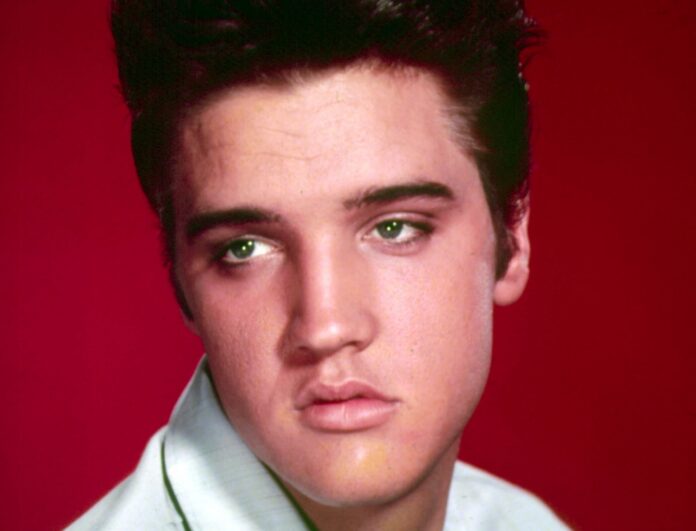I didn’t want to go, but a bunch of my friends did and said I would not be sorry. So, my sister (18) and I (19) bought tickets to go see this old, fat, drug addicted guy sing in Asheville, North Carolina. Our tickets were never used because a few days before the concert, my car radio blew up on my way home from work when a grieving DJ choked out, “Elvis is dead! Elvis is DEAD!”
That was Tuesday, August 16, 1977, and I would never get to see that old (he was only 42), fat, drug addicted guy sing live. And more’s the pity for me, I now say, after watching the biographical picture from Australian director and co-screenplay writer Baz Luhrmann, and is co-screenplay writers Sam Bromell and Craig Pearce.
Previously, Sissy Spacek’s 1980 Coal Miner’s Daughter held the highest honor for a bio-pic. The Elvis one will now serve, not only as the definitive Elvis story and deservedly so, but it has now put other writers, directors, and producers on notice: This is how to tell a story of and keep true to a complicated creative.
The quality of cinematography was phenomenal. Filmed entirely in Queensland, Australia, set designers managed to recreate a Beale Street (Memphis, Tennessee) that I thought was the real thing. Not one false note in the recreation of well-known American locations and landmarks integral to scene setting. Simply brilliant.
For instance, this video shows a side-by-side comparison of an original footage of Elvis to the film version with American actor Austin Butler. They interspersed some of these throughout; licensing had to have been a costly nightmare.
Butler had a huge job of being this complicated character in expression and movement. But he did it as if he were the man. I only hope he doesn’t go crazy and lose himself in the process.
Olivia DeJonge, playing Priscilla Presley, Elvis’ wife, did not overplay her role. It would’ve been easy to have been influenced by lurid reporting and gone over the top with her lines and expressions. But she didn’t. In fact, Australian DeJonge showed a restraint that allowed for an authenticity of emotion for the Elvis only a wife could really know.
DeJonge’s genuineness of character portrayal allowed Butler to let out that inner man, first as a besotted young man in Germany to his sitting on the steps of Graceland, as Cilla is leaving him, saying to her “When I’m fifty and you’re forty, we’ll be together again…”
I’m not a fan of Tom Hanks. Not that he isn’t a fine actor. Still, even as far back as his early days on TV, I never liked him and cannot say why other than there is an eager-beaver immature violence behind his smile that, while playing well onscreen in certain roles, in real life is not what I want to be around. I’ve never bought a Hanks’ movie ticket.
However, the makeup F/X and fat suit he wore every filming day he had on set hid his real appearance. It wasn’t until much later in the film at a closeup of his eyes that I realized it was Hanks under all that Parker outfit. So double-whammy-boo on that character. Still, Hanks did a great job of showing just how creepy-smart Parker was in making it snow and so Hanks did his job even as I did not enjoy it.
Standing O for the whole team who put this bio-pic together. They embodied TCB* and Elvis would’ve loved the film.

Elvis the Man
Elvis’ life was bigger than big which, of course, means there was no way the almost-three-hour movie could hope to put in everything. Therefore, necessarily much of his life was barely hinted at. That was a good thing for the film. Those “deleted scenes” of his life do not diminish the emotional depth and totality of the story one iota.
Instead of highlighting the low-hanging fruit of Elvis’ story — that which has been reported in lurid and sometimes exaggerated detail designed to sell magazines and newspapers and gain ratings points — the film concentrated on telling Presley’s inner story. I have no personal knowledge of this next statement, but my opinion is this:
Surely Pricilla must have given Luhrmann insight into their relationship and marriage that only she knew.
It was Elvis’ inner story, though, that caught and held my attention.
When the film begins, we see Colonel Parker telling the story from his POV. To hear Parker tell it, he made Elvis the Phenomenon while making them both a lot of money. In this, he was not wrong.
Elvis was God’s creation; a creator role Parker claimed as his own. But at what cost to Elvis? This Parker did not concern himself with as a man’s inner journey mattered only if it could make him bags of money. Any slowing of that process just would not do. Parker had absolutely no idea about the care and feeding of a creative’s soul and certainly did not realize that the very phenom making him all that money was the very thing he was destroying.
From the moment Jesse, Elvis’ twin, died at birth, Elvis was on a spiritual journey. Happiest when singing the gospel songs of his youth (he did four gospel albums), his faith in God was genuine. Sure, he meandered off and around and back and forth over that path, but had he not died I believe his life would’ve changed to have a laser focus on his God and better reflect his spirituality.
In other words, Elvis was a man who was moving along his spiritual path. Was it messy? Yes. Were there detours? Yes. But against the odds, he was still on it.
Elvis was a child of loss: His brother. His weak father. His fearful alcoholic mother. He was a child who needed a daddy upon whom he could depend. In trying to find that daddy — and to his detriment — he clung to Parker far too long as the only constant in his life.
Frankly, I was surprised at seeing on the screen a spiritual journey I and many other creatives are on. This theme of the spiritual journey of creatives is raising its head everywhere I turn.I’ve ordered the movie on DVD to watch again and study.
Elvis the movie entertained but made this once-young idiot want to go back in time and really understand the man. The team did a fine job of representing that spiritual need in him, the role it played in his creative life, and his struggle to remain true to God by simply being a God-fearing man even as the world pushed hard to turn him into a god.
*TCB= Taking Care of Business
* * * * * * * *
Thank you for participating in spreading thoughtful, insightful, common-sense information and sometimes just plain entertaining columns by sharing this with your friends and social network!
Born and raised in Georgia, Angela K. Durden is an author, publisher, editor, songwriter, performer, and more, living in the Metro Atlanta, Georgia, area. Support your Citizen Journalist by visiting her Consolidated Author Page and buying a book or three. See more about Angela here. Want to watch a fun video? Click here.






















